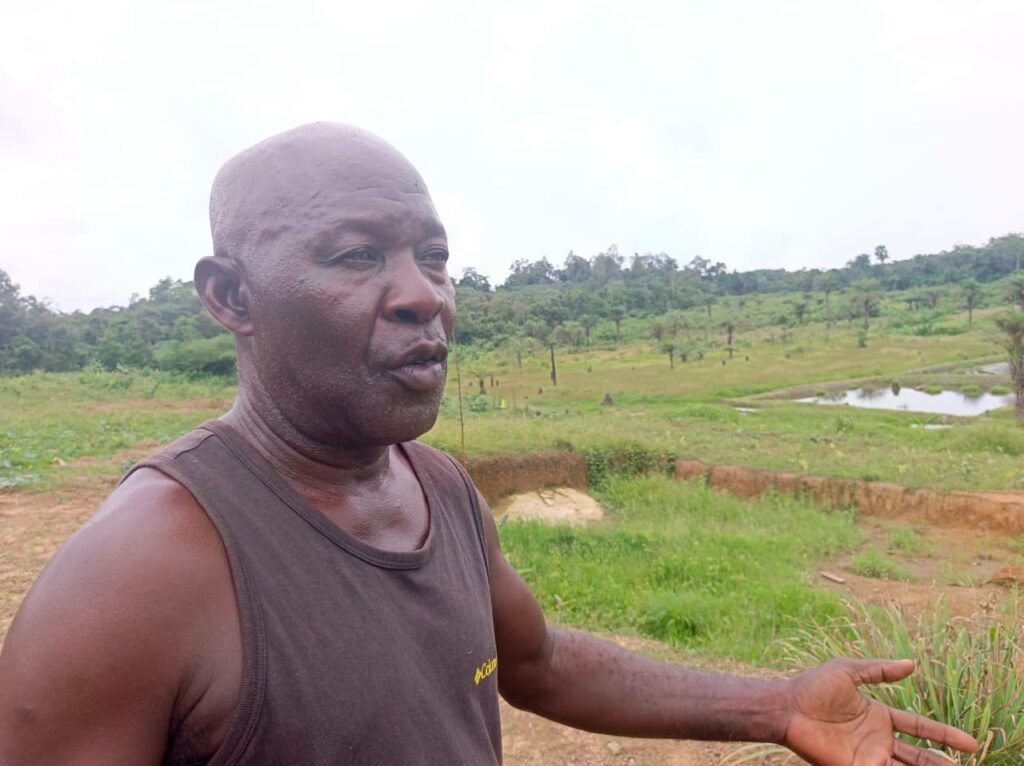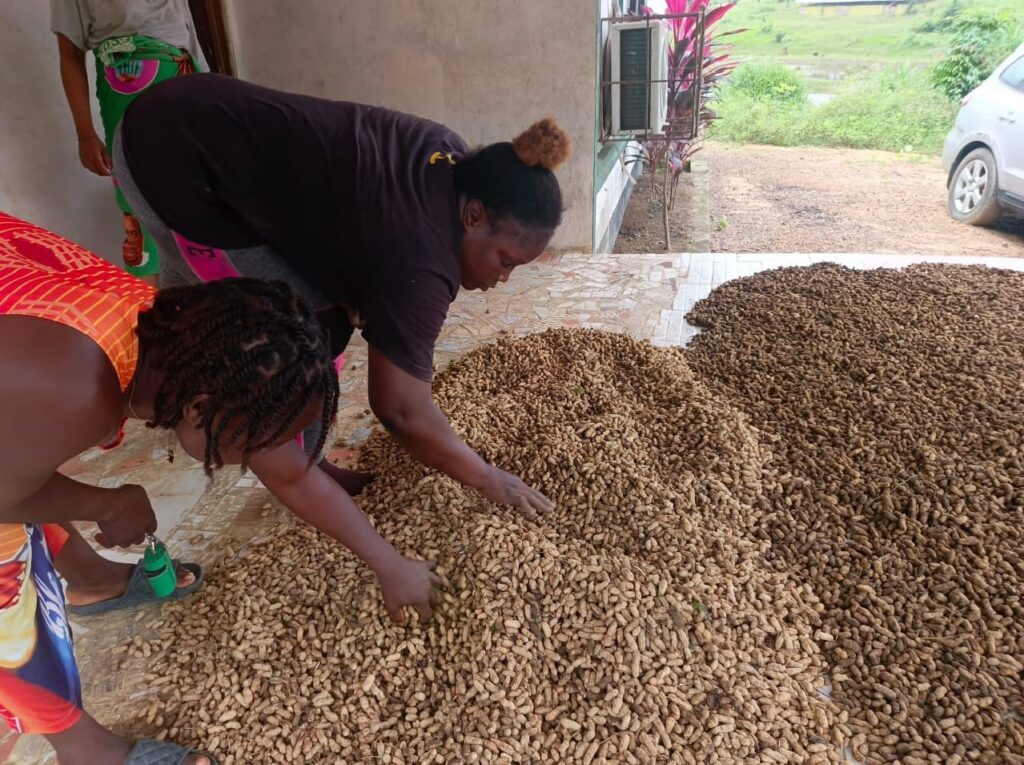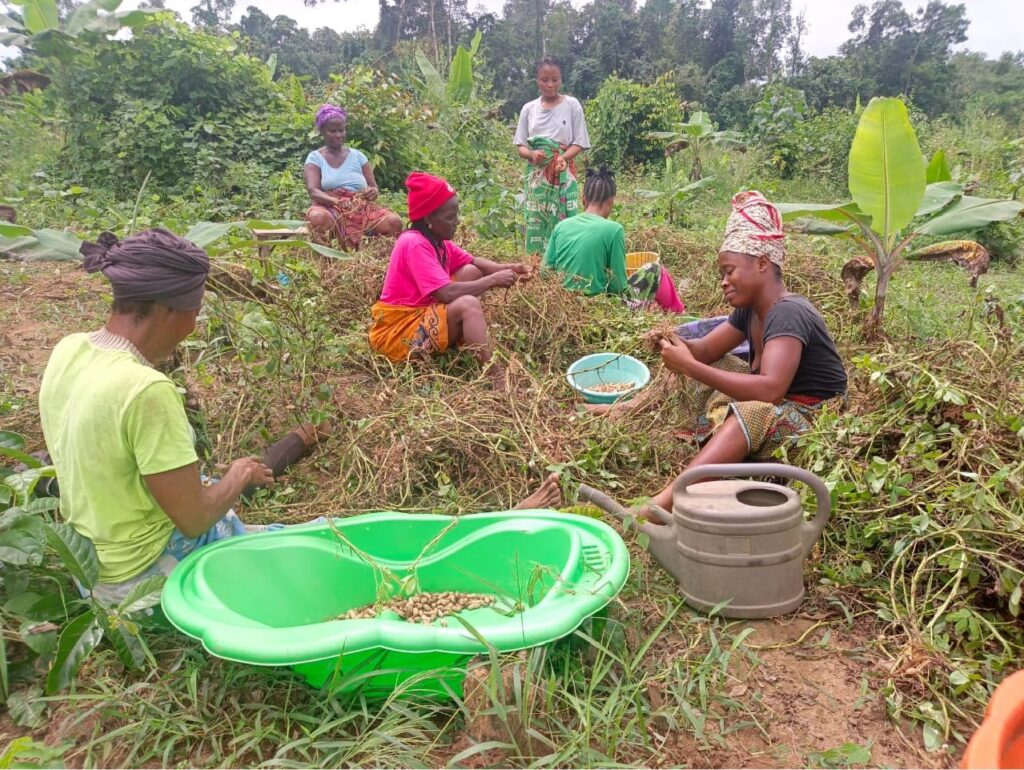By Ernest Kpehe Moibah|Bomi County
Coleman’s Village, Senjeh District: On the fringes of Bomi County, where red earth kisses the green horizon, one man is turning dreams into reality.
His name is Blama Kollie, and through his self-financed agricultural initiative, Dreams Farm Incorporated, he is proving that true national development begins not in boardrooms, but on the backs of local labor and the strength of planted seeds.
As early morning mist settles over 25 acres of thriving ground pea crops, Kollie walks the rows, boots pressed deep in the soil, flanked by vibrant mounds of hot pepper ready for market. The air smells of earth and promise.
“We’ve done the hard part,” he says, pausing to gesture at the ripening fields. “Now, we need partners who see this not just as a farm, but as a future.”
Kollie’s voice is calm, but firm, a tone sharpened by years of investment and risk. His farm, which started with little more than a vision and a patch of untested soil, has grown into a hundred acres enterprise embracing tree crops like oil palm, bananas, plantains, and beans. Beyond crops, the venture extends to livestock and fish farming, a diversified efforts designed not only for sustainability but for year-round food security.

Effectiveness Rooted in Purpose
What makes Dreams Farm effective isn’t merely the variety of its produce or the size of its farmlands. It’s the vision behind it; a private citizen, unaided by major institutions, creating structured job opportunities for over twenty-five people in a rural district where employment options are thin and migration is high.
From planting to harvest, Kollie has built systems that allow for seasonal planning, targeted cultivation, and local engagement. “This isn’t charity,” he says. “It’s a strategy. It’s building something people can rely on every day.”
EFFICIENCY, too, plays a key role. In an area often plagued by logistical challenges, Kollie has streamlined labor schedules, created crop rotation systems to keep soil fertile, and introduced water efficient irrigation for the dry season.
Workers speak of a place where expectations are clear and rewards are earned; where farming feels less like survival and more like contribution.

THE ECONOMIC PUZZLE: Where Are the Buyers?
Still, as the harvest begins, Kollie finds himself facing an all-too-familiar dilemma: MARKET ACCESS. “We’re producing, Yes; but who’s buying?” he asks.
It’s not a rhetorical question. Despite hundreds of thousands of dollars invested in infrastructure and crops over the last three years, the farm remains vulnerable, not to drought or pests, but to Market Stagnation.
He notes the irony: Liberia continues to import massive amounts of vegetables and meat; items grown in abundance on local farms like his. “If the government really wants to support the ARREST agenda, they have to stop overlooking Private Agro Businesses,” he says, referencing the national plan to revive economic sectors through Agriculture, Roads, Rule of law, Education, Sanitation, and Tourism.
He’s not alone in this frustration. Workers on the farm echo the concern. “We thank Mr. Kollie for giving us work,” says a young harvester in stained overalls. “But when the crops are ready and there’s no buyer, it feels like we’re farming into silence.”

A CALL TO ACTION: Partnership Over Pity
Kollie isn’t asking for charity, he’s calling for collaboration. He wants Agro-processing companies, government agencies, export buyers, and regional distributors to take notice.
He wants investors to see Dreams Farm not just as a rural project, but as a scalable model for agricultural development in post conflict Liberia. “This land has spoken,” he says, looking over his peanut fields. “Now, we need ears that will listen, hands that will partner, and minds that will move us forward.”
He believes Agriculture is not just about food, it’s about sovereignty, dignity, and national pride.
“If we can’t feed ourselves,” he says, “how can we call ourselves free?”
As the sun rises higher, casting long shadows over the rows of crops, it’s clear that Dreams Farm is not just a business. It is a blueprint. One man’s effort, rooted in faith, framed by effectiveness, and powered by efficiency, is now reaching out seeking not applause, but an alliance.
Will Liberia answer the call?




1 Comment
Thanks to Journalist Ernest Kpehe Moibah for publishing this Agri-related story.
Our government through the Ministry of Agriculture (MoA) need to be proactive and intentional improving the sector.
Access to market for local farmers is a serious challenge.